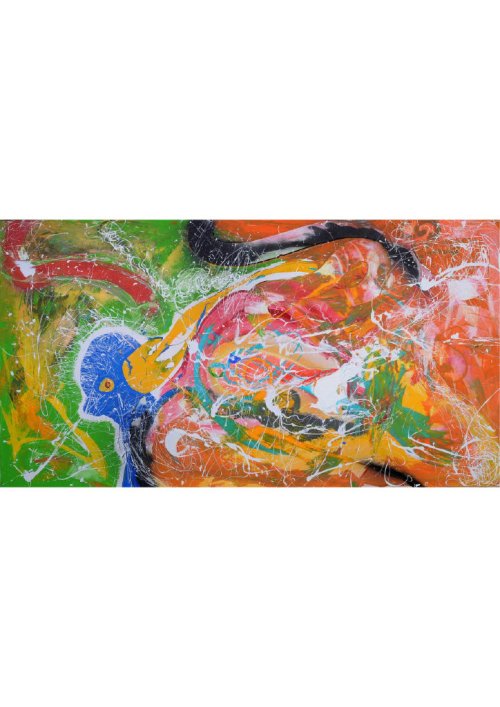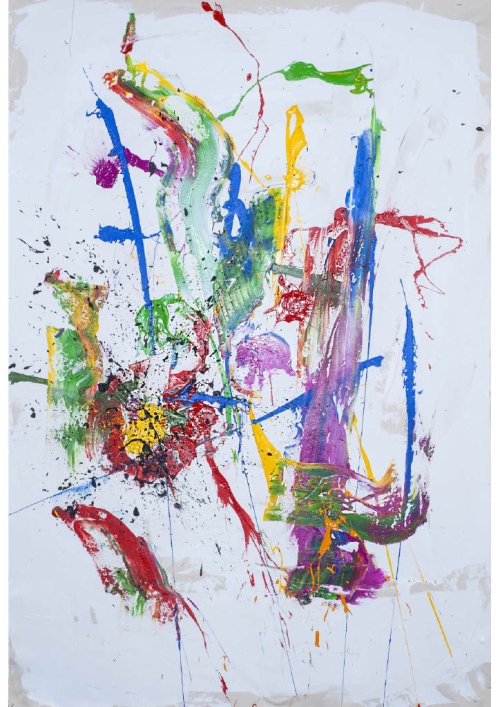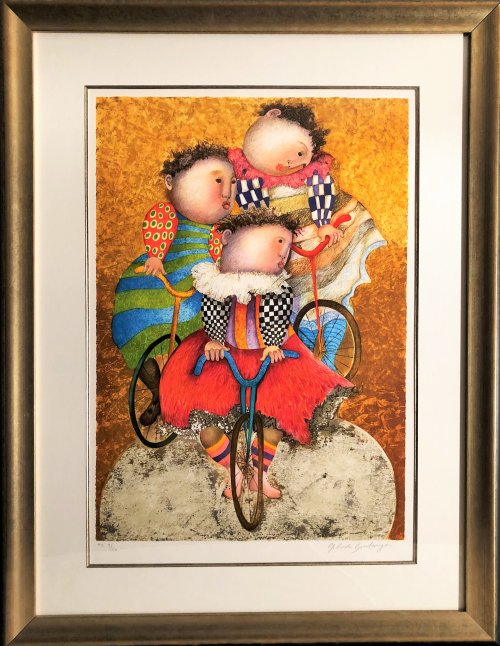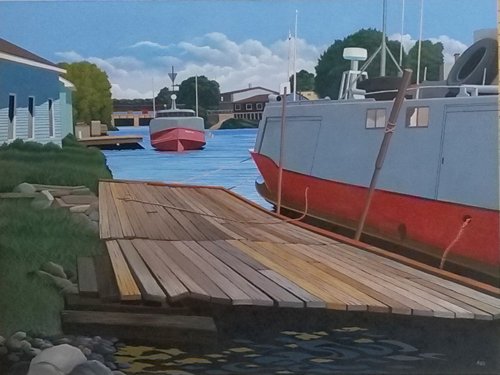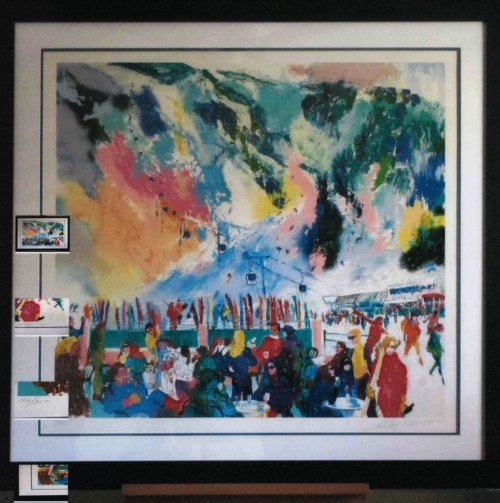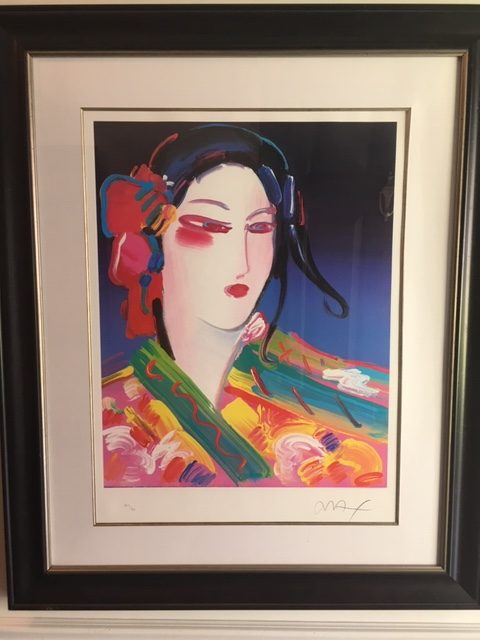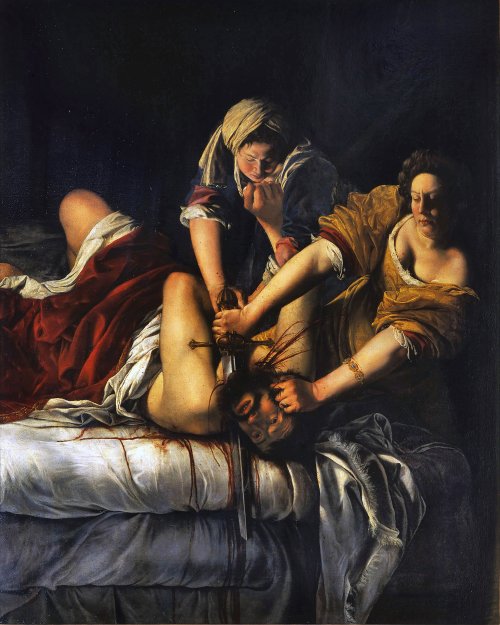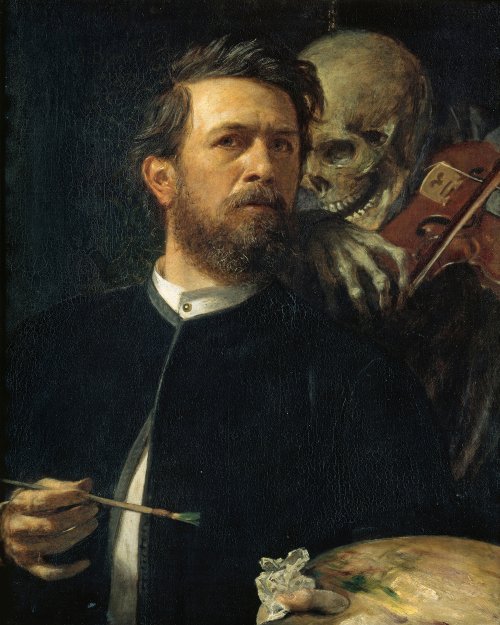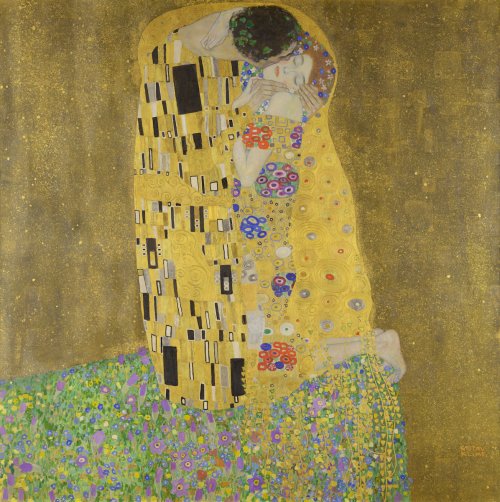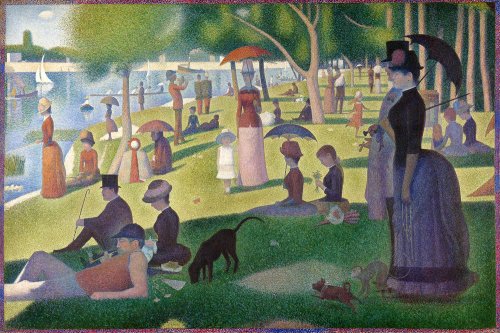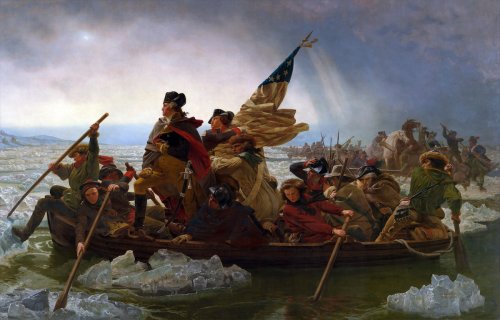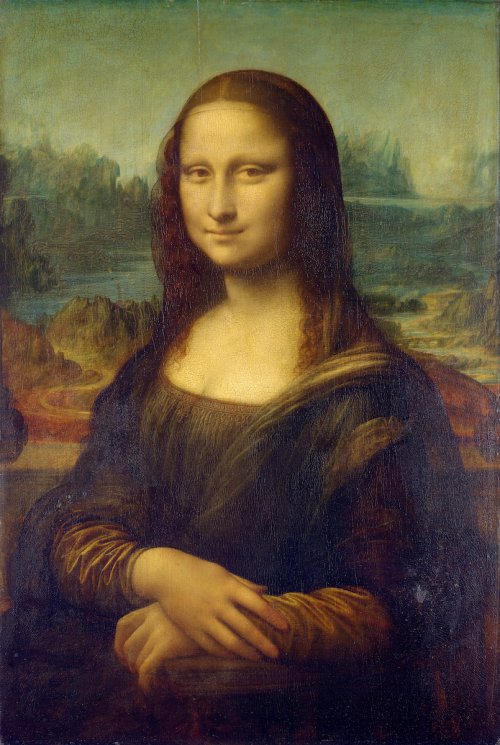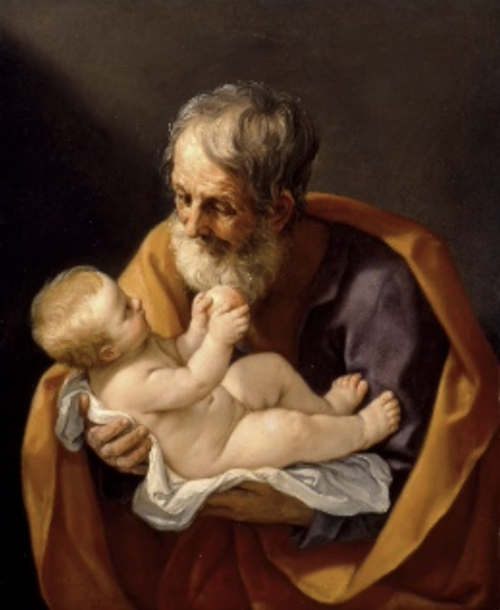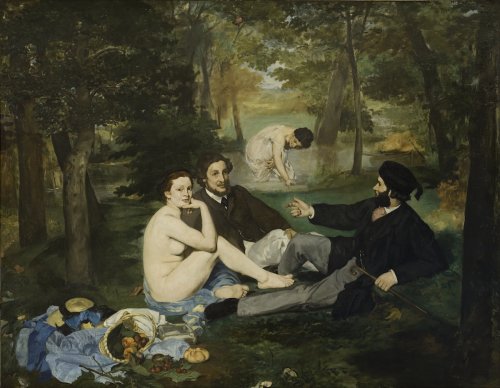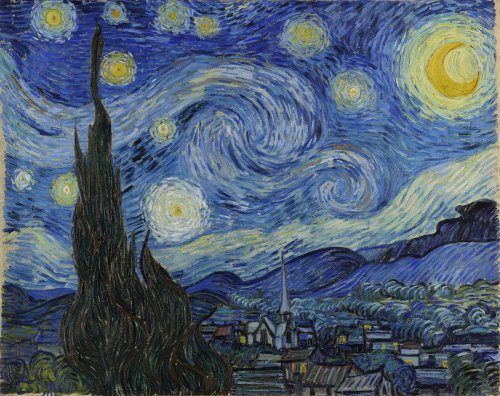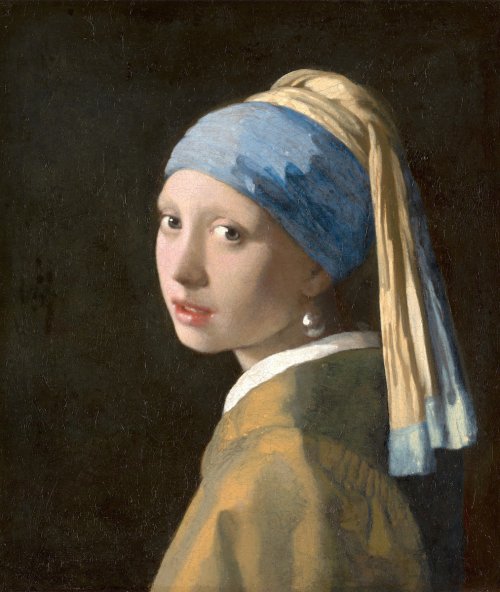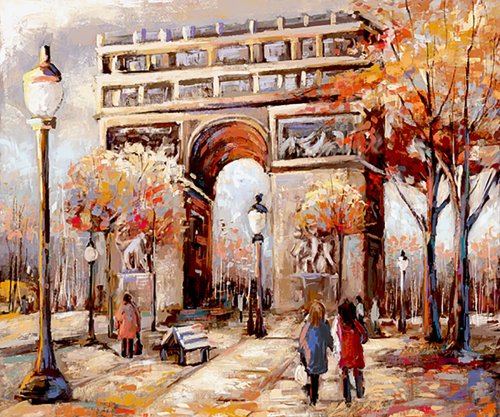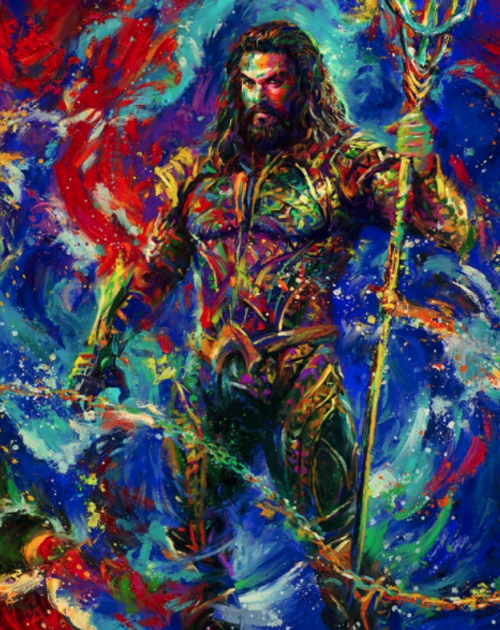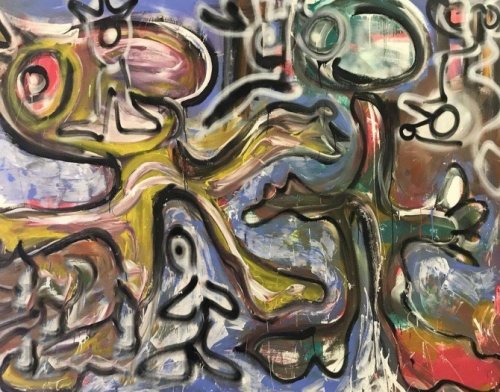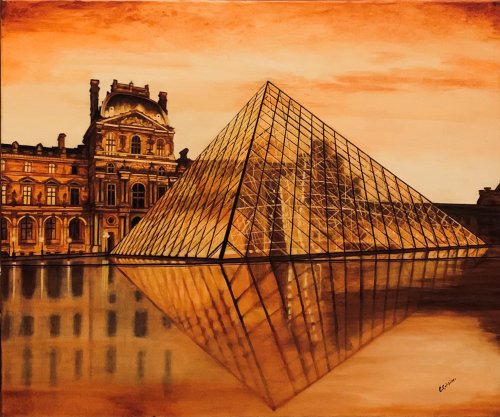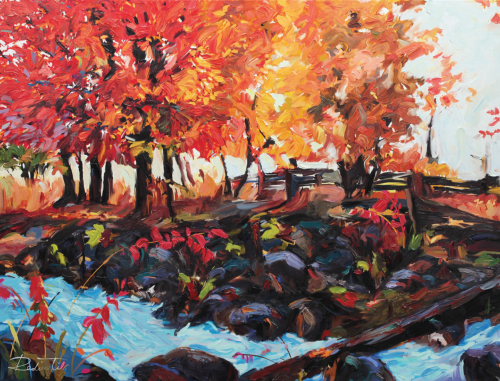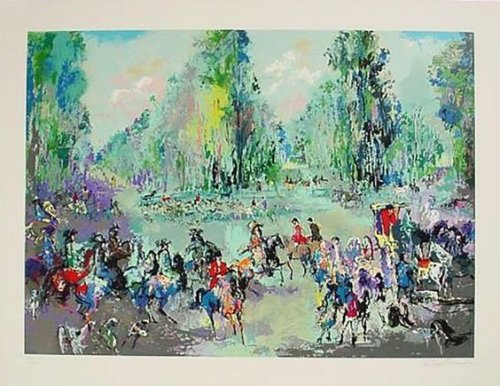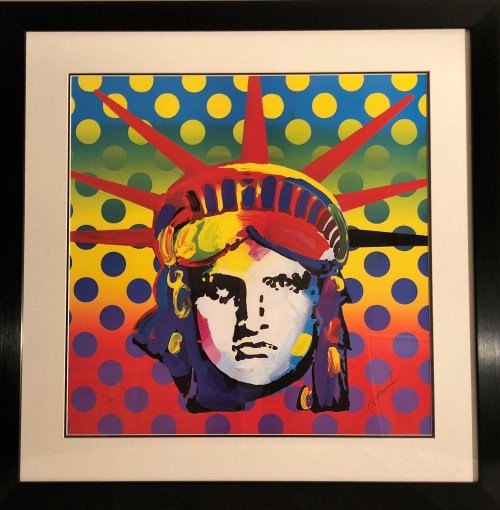-
An interesting take on abstract art. The latter portrays the beauty of the blur and superpostition of exquisite color. This italian artist is ahead of her time by using color and the uncertaintity to portray elemts of our everyday life.
-
An interesting take on abstract art. The latter portrays the beauty of the blur and superpostition of exquisite color. This italian artist is ahead of her time by using color and the uncertaintity to portray elemts of our everyday life.
-
Judith Beheading Holofernes is a baroque-style painting of the biblical episode by Caravaggio, in which the widow Judith stayed with the Assyrian general Holofernes in his tent after a banquet and then decapitated him after he passed out drunk. The exhibition catalog (Skira, 2018, p88) also cites biographer artist Giovanni Baglione’s account that Genoa banker Ottavio Costa commissioned the work.
The deuterocanonical Book of Judith tells how Judith served her people by seducing and pleasuring Holofernes, the Syrian General. Judith gets Holofernes drunk, then seizes her sword and slays him: “Approaching to his bed, she took hold of the hair of his head” (Judith 13:7–8).
Currently located at the Galleria Nazionale d’Arte Antica at Palazzo Barberini, Rome, the artwork is the most pivotal part of the Book of Judith. It depicts a socially liberated woman who punishes masculine wrongdoing.”
-
The Kiss (in German Der Kuss) is an oil-on-canvas painting with added gold leaf, silver, and platinum by the Austrian Symbolist painter Gustav Klimt. It was painted between 1907 and 1908, during the height of what scholars call his “Golden Period.” It was exhibited in 1908 under Liebespaar (the lovers), as stated in the exhibition catalog. Love, intimacy, and sexuality are common themes in Gustav Klimt’s works.
The painting depicts a couple embracing each other, their bodies entwined in elaborate, beautiful robes that were decorated in style influenced by the contemporary Art Nouveau style and the organic forms of the earlier Arts and Crafts movement. The painting now hangs in the Österreichische Galerie Belvedere museum in the Belvedere.
-
Appraised at $650 million dollars, A Sunday Afternoon on the Island of La Grande Jatte (French: Un dimanche après-midi à l'Île de la Grande Jatte) is Georges Seurat's most famous work. Executed on a large canvas, it is a founding work of the neo-impressionist movement. Seurat’s composition includes several Parisians at a park on the banks of the River Seine. It is in the collection of the Art Institute of Chicago.
Seurat’s painting was a mirror impression of his painting, Bathers at Asnières, completed shortly before, in 1884. Whereas it is doused in light, almost every figure on La Grande Jatte appears to be cast in shadow, under trees, an umbrella, or another person.
In 1923, Frederic Bartlett was appointed trustee of the Art Institute of Chicago. He and his second wife, Helen Birch Bartlett, loaned their collection of French Post-Impressionist and Modernist art to the museum.
-
This painting by German-American artist Emanuel Leutze commemorates General George Washington’s crossing of the Delaware River with the Continental Army on December 25–26, 1776, during the American Revolutionary War. That action was the first move in a surprise attack and victory against Hessian forces at the Battle of Trenton in New Jersey on 26 December.
The flag depicted is an early version of the flag of the United States (the “Stars and Stripes”), the design of which did not exist at the time of Washington’s crossing. The flag’s design was first specified on the 14 June 1777, Flag Resolution of the Second Continental Congress. It flew for the first time on 3 September 1777, well after Washington’s crossing in 1776.
The original was part of the collection at the Kunsthalle in Bremen, Germany, and was destroyed in a bombing raid in 1942 during World War II. Leutze painted two more versions, with the smaller version of the two, which was auctioned this year and sold for $43 million.
-
The Mona Lisa is a half-length portrait by Italian artist Leonardo da Vinci. Considered an archetypal masterpiece of the Italian Renaissance, viewed as “the best known, most visited, most written about, most sung about, and most parodied work of art in the world.” Its novel qualities include the subject’s enigmatic expression, the subtle modeling of forms, and atmospheric illusionism.
Identified to depict Italian noblewoman Lisa Gherardini, the wife of Francesco del Giocondo. He painted it in oil on a white Lombardy poplar panel. Leonardo never gave the painting to the Giocondo family, and later it is believed he left it in his will to his favored apprentice Salaì. Acquired by King Francis of France and is permanently displayed at the Louvre in Paris in 1797.
-
This intimate portrayal of Joseph demonstrates Reni’s skill through his rendering of the foster father of Christ as a simple man tenderly holding his infant son. The fruit held by infant Jesus reminds us of the fall of man in Eden and the fruitfulness of redemption through the advent of Christianity.
He was the most famous Italian painter of his day, revered for the grace and naturalness of his serenely balanced compositions. Even referred to as “the divine Guido.”
Working during the Catholic Counter-Reformation in the seventeenth century, Reni depicted images of saints and holy figures in the humanized and accessible form Catholic leaders required. This intimate portrayal of Joseph demonstrates Reni’s skill through his rendering of the foster father of Christ as a simple man tenderly holding his infant son.
-
Le Déjeuner sur l'herbe / The Luncheon on the Grass – originally titled Le Bain (The Bath) – is an impressionist oil on canvas painting by Édouard Manet created in 1862 and 1863.
It depicts a female nude and a scantily dressed female bather on a picnic with two fully dressed men in a rural setting. Rejected by the Salon jury of 1863, Manet seized the opportunity to exhibit this and two other paintings in the 1863 Salon des Refusés, where the painting sparked public notoriety and controversy. The artwork broke away from the classical view that art should obey established conventions and sought to achieve timelessness.
The work is now in the Musée d’Orsay in Paris. A smaller, earlier version of the image is currently exposed at the Courtauld Gallery, London.
-
The Starry Night is a post-impressionist oil-on-canvas painting by the Dutch Post-Impressionist painter Vincent van Gogh. Painted in June 1889, it depicts the view from the east-facing window of his asylum room at Saint-Rémy-de-Provence, just before sunrise, with the addition of an imaginary village. Widely regarded as Van Gogh’s magnum opus, The Starry Night is one of the most recognizable paintings in Western art.
In the aftermath of the 23 December 1888 breakdown that resulted in the self-mutilation of his left ear, Van Gogh voluntarily admitted himself to the Saint-Paul-de-Mausole lunatic asylum on 8 May 1889. The Starry Night was painted mid-June by around 18 June, the date he wrote to his brother Theo to say he had a new study of a starry sky. It has been in the permanent collection of the Museum of Modern Art in New York City since 1941.
The piece symbolizes Van Gogh’s deteriorating mental state and is estimated to be worth over 100 million dollars.
-
***AUG 22 RELEASE DATE*** Girl with a Pearl Earring (Dutch: Meisje met de Parel) is an oil painting by Dutch Golden Age painter Johannes Vermeer. Going by various names over the centuries, it became known by its present title towards the end of the 20th century after the earring worn by the girl portrayed there. The work has been in the collection of the Mauritshuis in The Hague since 1902.
The work is oil on canvas and is signed “IVMeer” but not dated. It is estimated to have been painted around 1665. After the most recent restoration of the painting in 1994, the subtle color scheme and the intimacy of the girl’s gaze toward the viewer have been greatly enhanced.
-
20" x 24" oil painting Contact us for the price. 1-888-383-4858 info@newportbrushstrokes.com
-
"Blend Cota Hand Signed Oil on Canvas 48x60 Fire Treated Resin Finish 3" Black Shadow Box with Metallic Finish Certificate of Authenticity Ready to Hang Blend Cota's painting is a combination of aggressive brushstroke textures with soft details that merges into a vibrant movement of colorful expression.This unique Blend Cota original has undergone a proprietary fire treated resin finish, that gives this work of art a vibrancy where colors and the subject come to life. Disclaimer: This is a photo of the one and only Blend Cota physical original painting, displayed here for viewing purposes."
-
An interesting take on abstract art. The latter portrays the beauty of the blur and superpostition of exquisite color. This italian artist is ahead of her time by using color and the uncertaintity to portray elemts of our everyday life.

